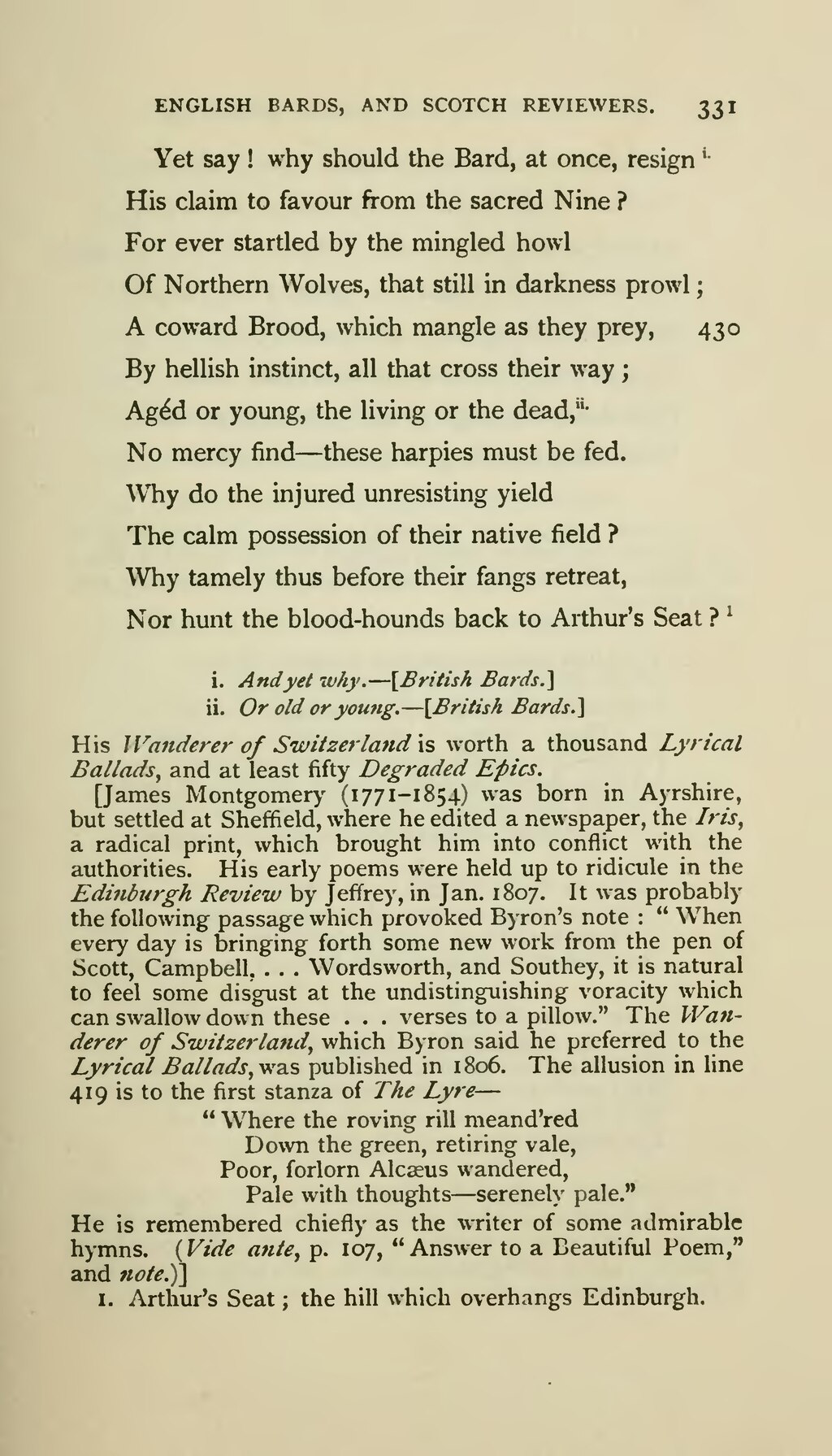Yet say! why should the Bard, at once, resign[1]
His claim to favour from the sacred Nine?
For ever startled by the mingled howl
Of Northern Wolves, that still in darkness prowl;
A coward Brood, which mangle as they prey,430
By hellish instinct, all that cross their way;
Agéd or young, the living or the dead,[2]
No mercy find—these harpies must be fed.
Why do the injured unresisting yield
The calm possession of their native field?
Why tamely thus before their fangs retreat,
Nor hunt the blood-hounds back to Arthur's Seat?[3]
- ↑ And yet why.—[British Bards.]
- ↑ Or old or young.—[British Bards.]
- ↑ Arthur's Seat; the hill which overhangs Edinburgh.
His Wanderer of Switzerland is worth a thousand Lyrical Ballads, and at least fifty Degraded Epics.
[James Montgomery (1771-1854) was born in Ayrshire, but settled at Sheffield, where he edited a newspaper, the Iris, a radical print, which brought him into conflict with the authorities. His early poems were held up to ridicule in the Edinburgh Review by Jeffrey, in Jan. 1807. It was probably the following passage which provoked Byron's note: "When every day is bringing forth some new work from the pen of Scott, Campbell, ... Wordsworth, and Southey, it is natural to feel some disgust at the undistinguishing voracity which can swallow down these ... verses to a pillow." The Wanderer of Switzerland, which Byron said he preferred to the Lyrical Ballads, was published in 1806. The allusion in line 419 is to the first stanza of The Lyre—
"Where the roving rill meand'red
Down the green, retiring vale,
Poor, forlorn Alcæus wandered,
Pale with thoughts—serenely pale."
He is remembered chiefly as the writer of some admirable hymns. (Vide ante, p. 107, "Answer to a Beautiful Poem," and note.)]
